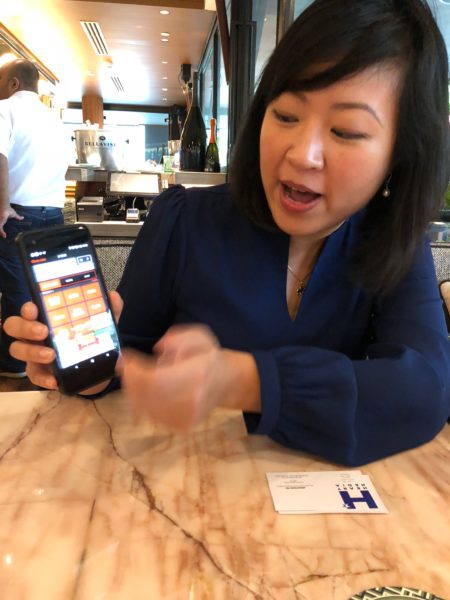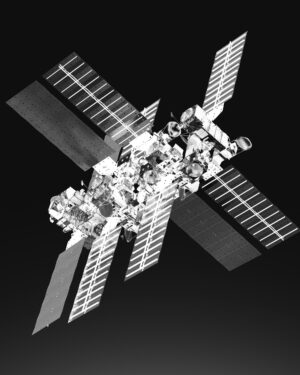
to hospital works. PHOTO: Grace Chng
Startups usually get about five minutes to pitch to investors upon finishing their six-month incubation or accelerator programmes.
These fintech, AI or the latest cybersecurity solutions may feature the latest technology to create new products and services. But they hold little excitement for me because they are just “babies”, freshly conceived and unable to make an impact on any industry or community just yet.
However, I found the Cartier Women’s Initiative Awards 2018 in Singapore last week most refreshing and illuminating. Every single idea from the 19 women finalists is creating an impact in the communities and countries where their projects have been implemented.
What did I like about it? It was about solving real problems. It wasn’t so much about changing the world. The emphasis is about creating solutions that will have positive impact on communities like improving sanitation and public health, creating affordable prosthetic limbs for amputees or providing married Muslim women doctors a chance to practice medicine.
Six were selected for the top award of US$100,000 each for creating strong social impact with their products and services. The remaining 13 finalists received US$30,000 each. The award was held at The Capella, Sentosa last Thursday.
Representing Asia-Pacific, Europe, Latin America, Middle East and North Africa, North America and Sub-Saharan Africa respectively, they are:
– Indian Swati Pandey’s startup Arboreal Agro Inovations, which set up an industrial scale, vertically-integrated producer of stevia, a 100 per cent natural substitute for sugar
– Kristina Tsvetanova from Austria, an established Blitab Technnology, which created a tactile tablet for the blind and visually impaired.
– Brazilian Paula Gomez’s startup Epistemic, which developed a device that alerts patients and caregivers of an oncoming epileptic seizure up to 25 minutes in advance.
– Lebanese Siroun Shamigian, who started Kamkalima, an online platform that uses artificial intelligence and data analytics to help people learn and teach Arabic.
– Dr Yiding Yu, from the United States, who set up Twiage, which offers a digital platform to enable the transmission of real time data from ambulance to hospital
– Cameroonian Melissa Bime, who set up Infiuss, an online blood bank that collects and dispatches blood donations to hospitals.
Many of the women discovered their business ideas due to their own circumstances. As a trainee doctor, Dr Yu observed that ambulance operators contact A&E departments via radio transmissions that are not secure. Hence, they give very little information, with no names mentioned over the transmission.
Information was generalised like “female patient, suspected of stroke”. When the patient arrives at the hospital, doctors have to scramble to find out the patient’s name and conduct the necessary tests, losing precious treatment time for life threatening conditions.
“For heart attacks, the window for effective treatment is 60 minutes. When you spend time finding out name and medical history, it is time lost, time that can be used to treat the patient,” she said at the meet-the-media session before the awards ceremony.
In late 2013, she developed the digital platform and cloud system that transmits real-time data to a hospital from an ambulance. Ambulance operators can use a mobile app to key in data like age, name, medical condition and other information to the hospital.
They can also record a message for the hospital. Medical staff at the hospital can then pull out the medical history and prepare to provide the right treatment.
“The communications is encrypted, so the information provided is secure,” said Dr Yu, who still practices as a doctor. She wants to expand her business globally and is open to collaborations with strategic partners. Twiage, which has about six to 10 employees, is now used by 53 hospitals in 11 states in the US.
Mechanical engineer Swati Pandey founded Arboreal Agro Innovations in India to develop Stevia as an alternative to sugar. Growing up, she observed her diabetic mother using Aspartame, an artificial sweetener which has side-effects. Stevia, on the other hand, is natural and is about 300 to 450 times sweeter than sugar.
With Arboreal Agro, Pandey set up an end-to-end solution where among other things, it supervises Stevia cultivation and harvesting, the sugar extraction process, the packaging and marketing. Working with farmers in Uttar Pradesh, she is trying to encourage farmers to switch from sugar to Stevia production.
“We’ve just come out of stealth mode and have begun working with farmers. We’ve a cooperative system where the farmers get together to grow Stevia and we support them. Alternatively, we also work with individual farmers where we’re more involved in the running of the Stevia plantation.”
Other entrepreneurs who received the consolation awards developed useful solutions including creating electronic vouchers to ensure that financial aid does find its way to the beneficiaries and a biodegradable sanitary pad to improve sanitation and which is also non-pollutive and sustainable.
There was also an innovative low-cost solution to “wrap” human sewage in a special polymer which sucks out all the liquid to improve sanitation and before the human waste is disposed.
The finalists from 14 countries were selected from 2,800 applications. They have strong scientific and engineering backgrounds to boost patient support, improve educational skills and opportunities, introduce non-pollutive and sustainable solutions to people’s vital needs.
Cartier partnered business school Insead, management consultancy McKinsey & Co and Ted Conferences for this event.






